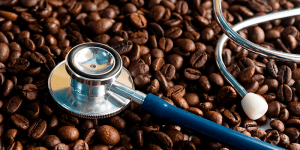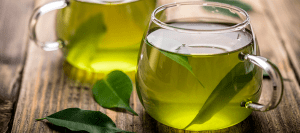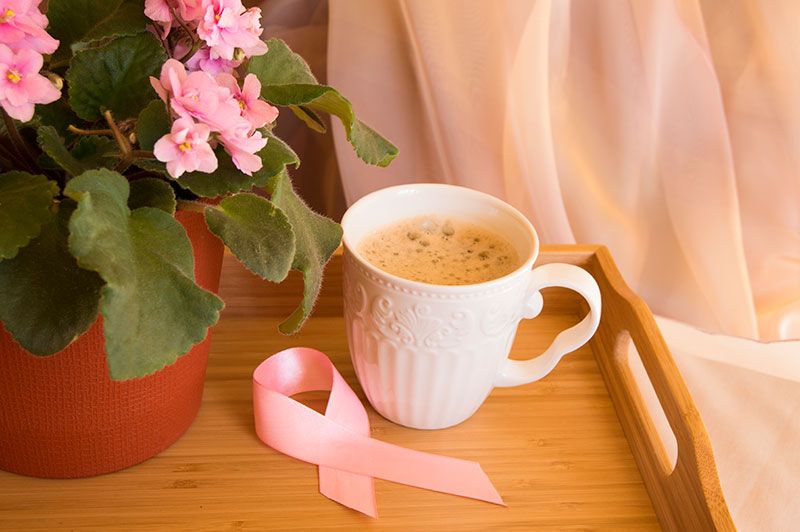Alta ingesta de café, más no de cafeína, es asociada con reducción de receptor de estrógeno negativo y de riesgo de cáncer de seno postmenopáusico
27-04-2017
El objetivo de este estudio fue examinar la relación entre el consumo de café y cafeína, y el riesgo de padecer cáncer de mama. Se incluyeron 3062 casos identificados a través del Ontario Cancer Registry, y 3427 controles localizados mediante llamada telefónica aleatoria. Se empleó una regresión logística para evaluar las asociaciones entre el riesgo de cáncer de mama y el consumo de 7 alimentos con cafeína, incluyendo en el análisis la presencia de una variante genética del citocromo P450 1A2 (CYP1A2) como potencial confusor. Otros confusores como presencia de receptor de estrógenos en el tumor, tabaquismo y presencia de menopausia fueron incluidos en el análisis estadístico mediante estratificación. En general, el café y cafeína no resultaron asociados al riesgo de padecer cáncer de mama, sin embargo se encontró una reducción significativa del riesgo en la categoría más alta de consumo de café (más de 5 tazas al día VS ninguna) OR 0,71, 95%IC: 0,51 – 0,98. La variante del CYP1A2 no confundió la asociación. En el análisis estratificado, el alto consumo de café resultó asociado con una reducción del riesgo de padecer cáncer de mama receptor de estrógenos negativo (OR= 0,41, 95%IC: 0,19-0,92) y postmenopáusico (OR= 0,63, 95%IC: 0,43-0,94), sin embargo hacen falta estudios que investiguen esta asociación.
1. SnowdonDAand Phillips RL: Coffee consumption and risk of fatal cancers. Am J Public Health 74, 820–823, 1984.
2. Lubin F, Ron E, Wax Y, and Modan B: Coffee and methylxanthines and breast cancer: a case-control study. J Natl Cancer Inst 74, 569–573, 1985.
3. Yu X, Bao Z, Zou J, and Dong J: Coffee consumption and risk of cancers: a meta-analysis of cohort studies. BMC Cancer 11, E96, 2011.
4. Tang N, Zhou B,Wang B, and Yu R: Coffee consumption and risk of breast cancer: a metaanalysis. Am J Obstet Gynecol 200, E290, 2009.
5. Gierach GL, Freedman ND, Andaya A, Hollenbeck AR, Park Y, et al.: Coffee intake and breast cancer risk in the NIH–AARP diet and health study cohort. Int J Cancer 131, 452–460, 2012.
6. Fagherazzi G, Touillaud MS, Boutron-Ruault MC, Clavel-Chapelon F, and Romieu I: No association between coffee, tea or caffeine consumption and breast cancer risk in a prospective cohort study. Public Health Nutr 14, 1315–1320, 2011.
7. Boggs DA, Palmer JR, Stampfer MJ, Spiegelman D, Adams-Campbell LL, et al.: Tea and coffee intake in relation to risk of breast cancer in the Black Women’s Health Study. Cancer Causes Control 21, 1941–1948, 2010.
8. Nilsson LM, Johansson I, Lenner P, Lindahl B, and Van Guelpen B: Consumption of filtered and boiled coffee and the risk of incident cancer: a prospective cohort study. Cancer Causes Control 21, 1533–1544, 2010.
9. Li J, Seibold P, Chang-Claude J, Flesch-Janys D, Liu J, et al.: Coffee consumption modifies risk of estrogen-receptor negative breast cancer. Breast Cancer Res 13, E49, 2011.
10. Kotsopoulos J, Eliassen AH, Missmer SA, Hankinson SE, and Tworoger SS: Relationship between caffeine intake and plasma sex hormone con-11. Goto A, Song Y, Chen BH, Manson JE, Buring JE, et al.: Coffee and caffeine consumption in relation to sex hormone-binding globulin and risk of type 2 diabetes in postmenopausal women. Diabetes 60, 269–275, 2011.
12. Jernstr¨om H, Klug TL, Sepkovic DW, Bradlow HL, and Narod SA: Predictors of the plasma ratio of 2-hydroxyestrone to 16alpha-hydroxyestrone
among pre-menopausal, nulliparous women from four ethnic groups. Carcinogenesis 24, 991–1005, 2003.
13. Woolcott CG, Shvetsov YB, Stanczyk FZ, Wilkens LR, White KK, et al.: Plasma sex hormone concentrations and breast cancer risk in an ethnically diverse population of postmenopausal women: theMultiethnic Cohort Study. Endocr Relat Cancer 17, 125–134, 2010.
14. Kaaks R, Rinaldi S, Key TJ, Berrino F, Peeters PH, et al.: Postmenopausal serum androgens, oestrogens and breast cancer risk: the European prospective investigation into cancer and nutrition. Endocr Relat Cancer 12, 1071–1082, 2005.
15. Zeleniuch-Jacquotte A, Shore RE, Koenig KL, Akhmedkhanov A, Afanasyeva Y, et al.: Postmenopausal levels of oestrogen, androgen, and SHBG and breast cancer: long-term results of a prospective study. Br J Cancer 90, 153–159, 2004.
16. Walker K, Bratton DJ, and Frost C: Premenopausal endogenous oestrogen levels and breast cancer risk: a meta-analysis. Br J Cancer 105, 1451–1457, 2011.
17. Obi N, Vrieling A, Heinz J, and Chang-Claude J: Estrogen metabolite ratio: Is the 2-hydroxyestrone to 16!-hydroxyestrone ratio predictive for breast cancer? Int J Womens Health 3, 37–51, 2011.
18. Larsson SC, Bergkvist L, and Wolk A: Coffee and black tea consumption and risk of breast cancer by estrogen and progesterone receptor status in a Swedish cohort. Cancer Causes Control 20, 2039–2044, 2009.
19. Michels KB, Holmberg L, Bergkvist L, and Wolk A: Coffee, tea, and caffeine consumption and breast cancer incidence in a cohort of Swedish women. Ann Epidemiol 12, 21–26, 2002.
20. Smith SJ,Deacon JM, and Chilvers CE: Alcohol, smoking, passive smoking and caffeine in relation to breast cancer risk in young women. UK National Case-Control Study Group. Br J Cancer 70, 112–119, 1994.
21. Folsom AR, McKenzie DR, Bisgard KM, Kushi LH, and Sellers TA: No association between caffeine intake and postmenopausal breast cancer incidence in the IowaWomen’s Health Study. Am J Epidemiol 138, 380–383, 1993.
22. Rohan TE and McMichael AJ: Methylxanthines and breast cancer. Int J Cancer 41, 390–393, 1988.
23. Ishitani K, Lin J, Manson JE, Buring JE, and Zhang SM: Caffeine consumption and the risk of breast cancer in a large prospective cohort of women. Arch Intern Med 168, 2022–2031, 2008.
24. Ganmaa D, Willett WC, Li TY, Feskanich D, van Dam RM, et al.: Coffee, tea, caffeine and risk of breast cancer: a 22-year follow-up. Int J Cancer 122, 2071–2076, 2008.
25. Zhou SF, Yang LP, Zhou ZW, Liu YH, and Chan E: Insights into the substrate specificity, inhibitors, regulation, and polymorphisms and the clinical impact of human cytochrome P450 1A2. AAPS J 11, 481–494, 2009.
26. Amin N, Byrne E, Johnson J, Chenevix-Trench G,Walter S, et al.: Genomewide association analysis of coffee drinking suggests association with CYP1A1/CYP1A2 and NRCAM. Mol Psychiatry [published online ahead of print August 30, 2011].
27. Cornelis MC,Monda KL,YuK, Paynter N, Azzato EM, et al.:Genome-wide meta-analysis identifies regions on 7p21 (AHR) and 15q24 (CYP1A2) as determinants of habitual caffeine consumption. PLoS Genet 7, E1002033, 2011.
28. Sulem P, Gudbjartsson DF, Geller F, Prokopenko I, Feenstra B, et al.: Sequence variants at CYP1A1-CYP1A2 and AHR associate with coffee consumption. Hum Mol Genet 20, 2071–2077, 2011.
29. Djordjevic N, Ghotbi R, Jankovic S, and Aklillu E: Induction of CYP1A2 by heavy coffee consumption is associated with the CYP1A2 -163C>A polymorphism. Eur J Clin Pharmacol 66, 697–703, 2010.
30. Ghotbi R, ChristensenM, Roh HK, Ingelman-Sundberg M, Aklillu E, et al.: Comparisons of CYP1A2 genetic polymorphisms, enzyme activity and the genotype–phenotype relationship in Swedes and Koreans. Eur J Clin Pharmacol 63, 537–546, 2007.
31. Sachse C, Brockmoller J, Bauer S, and Roots I: Functional significance of a C’A polymorphism in intron 1 of the cytochrome P450 CYP1A2 gene tested with caffeine. Br J Clin Pharmacol 47, 445–449, 1999.
32. Palatini P, Ceolotto G, Ragazzo F, Dorigatti F, Saladini F, et al.: CYP1A2 genotype modifies the association between coffee intake and the risk of hypertension. J Hypertens 27, 1594–1601, 2009.
33. Cornelis MC, El-Sohemy A, Kabagambe EK, and Campos H: Coffee, CYP1A2 genotype, and risk of myocardial infarction. JAMA 295, 1135–1141, 2006.
34. Goodman MT, Tung KH, McDuffie K,Wilkens LR, and Donlon TA. Association of caffeine intake and CYP1A2 genotype with ovarian cancer. Nutr Cancer 46, 23–29, 2003.
35. Kotsopoulos J, Ghadirian P, El-Sohemy A, Lynch HT, Snyder C, et al.: The CYP1A2 genotype modifies the association between coffee consumption and breast cancer risk among BRCA1 mutation carriers. Cancer Epidemiol Biomarkers Prev 16, 912–916, 2007.
36. Bhoo Pathy N, Peeters P, van Gils C, Beulens JW, van der Graaf Y, et al.: Coffee and tea intake and risk of breast cancer. Breast Cancer Res Treat 121, 461–467, 2010.
37. Brown J, Kreiger N, Darlington GA, and Sloan M: Misclassification of exposure: coffee as a surrogate for caffeine intake. Am J Epidemiol 153, 815–820, 2001.
38. Cotterchio M, Boucher BA, Kreiger N, Mills CA, and Thompson LU: Dietary phytoestrogen intake—lignans and isoflavones—and breast cancer risk (Canada). Cancer Causes Control 19, 259–272, 2008.
39. Anderson LN, Cotterchio M, Cole DE, and Knight JA: Vitamin D-related genetic variants, interactions with vitamin D exposure, and breast cancer risk among Caucasian women in Ontario. Cancer Epidemiol Biomarkers Prev 20, 1708–1717, 2011.
40. Boucher B, Cotterchio M, Kreiger N, Nadalin V, Block T, et al.: Validity and reliability of the Block98 food-frequency questionnaire in a sample of Canadian women. Public Health Nutr 9, 84–93, 2006.
41. Willett WC, Stampfer MJ, Manson JE, Colditz GA, Rosner BA, et al.: Coffee consumption and coronary heart disease in women. A ten-year follow-up. JAMA 275, 458–462, 1996.
42. Health Canada: Caffeine in Food. Ottawa, Canada: Government of Canada. Retrieved from http://www.hc-sc.gc.ca/fn-an/securit/addit/caf/food-cafaliments- eng.php
43. Maldonado G and Greenland S: Simulation study of confounder selection strategies. Am J Epidemiol 138, 923–936, 1993.
44. Djordjevic N, Ghotbi R, Bertilsson L, Jankovic S, and Aklillu E: Induction of CYP1A2 by heavy coffee consumption in Serbs and Swedes. Eur J Clin Pharmacol 64, 381–385, 2008.
45. Karp SE, Tonin PN, B´egin LR, Martinez JJ, Zhang JC, et al.: Influence of BRCA1 mutations on nuclear grade and estrogen receptor status of breast carcinoma in Ashkenazi Jewish women. Cancer 80, 435–441, 1997.
46. Lakhani SR, Van De Vijver MJ, Jacquemier J, Anderson TJ, Osin PP, et al.: The pathology of familial breast cancer: predictive value of immunohistochemical markers estrogen receptor, progesterone receptor, HER-2, and p53 in patients with mutations in BRCA1 and BRCA2. J Clin Oncol 20, 2310–2318, 2002.
47. Honrado E, Ben´ıtez J, and Palacios J. Histopathology of BRCA1- and BRCA2-associated breast cancer. Crit Rev Oncol Hematol 59, 249. Wang Y and Ho CT: Polyphenolic chemistry of tea and coffee: a century of progress. J Agric Food Chem 57, 8109–8114, 2009.
50. Clifford MN: Chlorogenic acids and other cinnamates: nature, occurrence and dietary burden. J Agric Food Chem 79, 362–372, 1999.
51. Daglia M, Racchi M, Papetti A, Lanni C, Govoni S, et al.: In vitro and ex vivo antihydroxyl radical activity of green and roasted coffee. J Agric Food Chem 52, 1700–1704, 2004.
52. Key TJ: Fruit and vegetables and cancer risk. Br J Cancer 104, 6–11, 2011.
53. Michels KB, Mohllajee AP, Roset-Bahmanyar E, Beehler GP, and Moysich KB: Diet and breast cancer: a review of the prospective observational studies. Cancer 109, 2712–2749, 2007.
54. Thompson LU, Boucher BA, Liu Z, Cotterchio M, and Kreiger N: Phytoestrogen content of foods consumed in Canada, including isoflavones, lignans, and coumestan. Nutr Cancer 54, 184–201, 2006.
55. Buck K, Zaineddin AK, Vrieling A, Linseisen J, and Chang-Claude J: Meta-analyses of lignans and enterolignans in relation to breast cancer risk. Am J Clin Nutr 92, 141–153, 2010.
56. McCann SE, Hootman KC,Weaver AM, Thompson LU,Morrison C, et al.: Dietary intakes of total and specific lignans are associated with clinical breast tumor characteristics. J Nutr 142, 91–98, 2012.
57. McCann SE, Kulkarni S, Trevisan M, Vito D, Nie J, et al.: Dietary lignan intakes and risk of breast cancer by tumor estrogen receptor status. Breast Cancer Res Treat 99, 309–311, 2006.
58. Alves RC, Costa AS, Jerez M, Casal S, Sineiro J, et al.: Antiradical activity, phenolics profile, and hydroxymethylfurfural in espresso coffee: influence of technological factors. J Agric Food Chem 58, 12221–12229, 2010.
59. Farah A, de Paulis T, Moreira DP, Trugo LC, and Martin PR: Chlorogenic acids and lactones in regular and water-decaffeinated Arabica coffees. J Agric Food Chem 54, 374–381, 2006.
60. Health Canada: Canadian Nutrient File. Ottawa, Canada: Government of Canada. Retrieved from http://webprod3.hc-sc.gc.ca/cnf-fce/indexeng.jsp
61. Bell LN, Wetzel CR, and Grand AN: Caffeine content in coffee as influenced by grinding and brewing techniques. Food Res Int 29, 785–789, 1996.
62. Andrews KW, Schweitzer A, Zhao C, Holden JM, Roseland JM, et al.: The caffeine contents of dietary supplements commonly purchased in the US: analysis of 53 products with caffeine-containing ingredients. Anal Bioanal Chem 389, 231–239, 2007.
63. Higgins JP, Tuttle TD, and Higgins CL: Energy beverages: content and safety. Mayo Clin Proc 85, 1033–1041, 2010.
64. Ferlay J, Shin HR, Bray F, Forman D, Mathers C, et al.: GLOBOCAN 2008 v1.2, Cancer Incidence and Mortality Worldwide: IARC CancerBase No. 10. Lyon, France: International Agency for Research on Cancer. Retrieved from http://globocan.iarc.fr7–39, 2006.
48. Halvorsen BL, Carlsen MH, Phillips KM, Bøhn SK, Holte K, et al.: Content of redox-active compounds (ie, antioxidants) in foods consumed in the United States. Am J Clin Nutr 84, 95–135, 2006.














